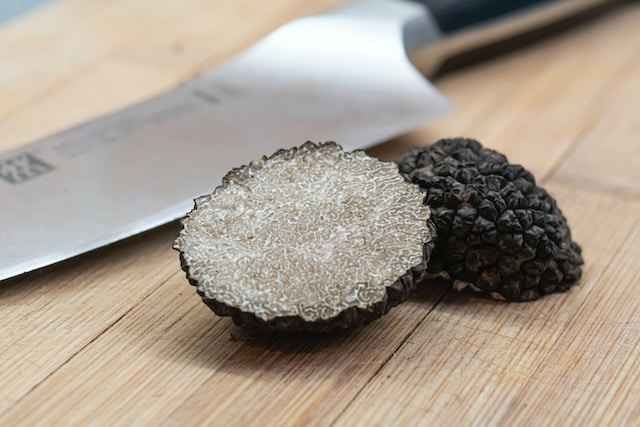When it comes to the world of cuisine, truffles are considered a luxurious delicacy that is sought after by many. The flavor of truffles is unique, and its taste is often described as earthy, nutty, and musky. However, when it comes to the vegan community, the question arises, is truffle vegan? The answer to this question is not as simple as it may seem, as there are different types of truffles and various factors to consider. In this article, we will delve deeper into the world of truffles and determine whether they are suitable for a vegan diet.
What are Truffles?
Truffles are a type of edible fungus that grow underground, typically near the roots of trees, such as oak and hazelnut. There are two main types of truffles, the black truffle (Tuber melanosporum) and the white truffle (Tuber magnatum). Both are highly prized for their unique flavor and aroma, and they are used in a variety of dishes, including pasta, risotto, and sauces.
Truffles are notoriously difficult to cultivate, which is why they are so expensive. They require a specific type of soil, the right amount of rainfall, and the right temperatures to grow. Additionally, truffles can only be found by trained dogs or pigs, who sniff out the aroma of the fungus underground.
Are Truffles Vegan?
The answer to the question of whether truffles are vegan is not straightforward. While truffles themselves are a type of fungus and are technically vegan, the methods used to harvest them may not be. In some cases, truffles are harvested using animals, such as pigs or dogs, who are trained to sniff out the fungus underground. These animals are used because they have a heightened sense of smell, which makes them excellent at finding truffles. However, during the harvesting process, the animals can damage the truffle’s fragile mycelium network, which can hinder future growth.
Additionally, some truffle hunters use unethical methods to train their animals, such as withholding food or water, or using shock collars. This mistreatment of animals goes against the principles of veganism, which is why many vegans do not consider truffles to be vegan.
Truffle Farming
To address the concerns of animal welfare, some truffle farmers have started using alternative methods for harvesting truffles. One of the most popular methods is to use trained dogs instead of pigs. Unlike pigs, dogs do not dig up the truffles, which can damage the mycelium network. Instead, dogs are trained to locate the truffles and indicate their location to the farmer, who then uses a special tool to extract the truffle from the ground carefully.
Another method used by some truffle farmers is to cultivate truffles artificially. This involves planting truffle spores in a controlled environment, which mimics the natural conditions required for truffle growth. While this method is still relatively new and not as common, it provides a more ethical and sustainable way to produce truffles without the use of animals.
Vegan Truffle Alternatives
For vegans who are still uncomfortable with the idea of consuming truffles, there are several vegan alternatives that offer a similar taste and aroma. One of the most popular vegan alternatives is truffle oil, which is made by infusing oil with the flavor of truffles. Truffle oil can be used to flavor a wide range of dishes, including salads, pasta, and vegetables.
Another vegan alternative to truffles is mushrooms. While mushrooms do not have the same unique flavor as truffles, they do have a similar earthy taste and can be used in a variety of dishes. Some mushrooms, such as porcini, shiitake, and oyster, have a stronger flavor than others and can be used as a substitute for truffles in recipes.
It’s worth noting that some truffle oils on the market are not made with real truffles but instead use artificial flavors or chemicals to mimic the taste and aroma of truffles. Therefore, it’s essential to read the label carefully and look for oils that are made with real truffle extract.
Final Thoughts
In conclusion, the answer to the question of whether truffles are vegan is not straightforward. While truffles themselves are technically vegan, the methods used to harvest them may involve the mistreatment of animals, which goes against the principles of veganism. However, there are alternative methods for harvesting truffles, such as using trained dogs or cultivating truffles artificially, which are more ethical and sustainable.
For vegans who are still uncomfortable with the idea of consuming truffles, there are several vegan alternatives that offer a similar taste and aroma, such as truffle oil or mushrooms. Ultimately, the decision to consume truffles as a vegan is a personal choice, and it’s essential to consider the ethical implications of the methods used to produce them.
As the world becomes more conscious of the impact of animal agriculture and the treatment of animals, it’s essential to consider the ethical implications of the food we consume. While truffles are undoubtedly a luxurious delicacy, it’s essential to ensure that they are produced ethically and sustainably, and that the methods used to harvest them align with our personal values and beliefs.

